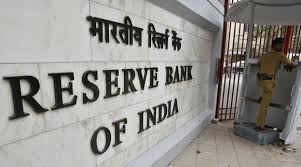 Strong macroeconomic fundamentals offer India a ‘reasonable degree of resilience’ to fight uncertainties, but poor asset quality of banks and managing expectations are key challenges for regulators and the government, says the Financial Stability Report.
Strong macroeconomic fundamentals offer India a ‘reasonable degree of resilience’ to fight uncertainties, but poor asset quality of banks and managing expectations are key challenges for regulators and the government, says the Financial Stability Report.
"There has been a significant improvement in the macroeconomic environment, and going forward, economic performance is expected to be better," the six-monthly FSR released by the Reserve Bank said on Thursday.
However, managing expectations is a challenge for policymakers as the recovery in business sentiment has not taken roots, the report has warned.
"A relatively stronger macro-economic fundamentals in terms of growth, inflation, and current account and fiscal deficits provide a reasonable degree of resilience to our financial system," it said.
Gross non-performing assets in the banking system have grown to 4.6 per cent at the end of March this year from 4.5 per cent in September 2014, while the stressed advances, including standard restructured loans have risen to 11.1 per cent from 10.7 per cent, the report said.
Stating that the rising non-performing assets situation has not bottomed out, the report warned that asset quality deterioration is likely to continue for a few more quarters.
On a sectoral level, mining, iron and steel, textiles, infrastructure and aviation sectors contributed highest to asset quality stress, with such advances at 17.9 per cent, the report said.
"While risks to the banking sector have moderated marginally since September 2014, concerns remain over the continued weakness in asset quality and profitability," the FSR said.
Warning that further deterioration in asset quality can "adversely affect the health of the banking system", it said under the baseline scenario, stress tests have shown that the gross NPAs may increase marginally to 4.8 per cent in the September quarter of the current fiscal and then improve to 4.7 per cent by the March 2016 quarter.
The report is published by a sub-committee of Financial Stability & Development Council.
The sub-committee, headed by the RBI Governor Rajan, has representations from the heads of other financial markets regulators like the Securities and Exchange Board of India, Insurance Regulatory Development Authoritu, Forward Markets Commission
and the Pension Fund Regulatory and Development Authority apart from the chief economic advisor to the finance ministry and the finance secretary among others.
However, if the macroeconomic conditions deteriorate, the GNPAs can go up to 5.9 per cent by March 2016, FSR warned.
The state-run lenders continued to trail private sector when it comes to asset quality, with stressed advances at 13.5 per cent as against 4.6 per cent for the private sector banks.
Under the baseline scenario, the RBI report estimates that public sector banks' gross NPAs will rise to 5.7 per cent by the end of March 2016.
In his foreword, Governor Raghuram Rajan said the continued stress, coupled with the consequent pressure on capital adequacy, "is a matter of increasing concern".
He said these 27 state-run banks have a substantial role to play for "sustainable and equitable economic growth" and highlighted that hence the actions taken by government and the RBI to reduce the stress by solving legacy issues and strengthening governance structures are important.
The report said that while the capital ratios for the banking system improved marginally, the state-run banks have continued to record lower capital to risk weighted assets ratio.
The state-run banks may have to bolster their provisions further to improve the expected losses in case of a further deterioration in economic conditions, the report said and added that focusing on governance and management processes, along with a re-orientation of business strategies, will help improve the performance of state-run banks in the long-run.
The FSR also said the stress levels in the top ten banks identified as systemically important are higher than the average for the system and therefore their performance will need to be ‘closely monitored’.
Stating that the RBI front-loaded potential benefits by delivering cuts of 0.75 per cent in the first half of 2015, the FSR said, "price pressures arising from possible sub-normal monsoon remains a significant risk to food and headline inflation."
Even though the external vulnerabilities have come down, the FSR said "we should not be complacent in an environment of continued uncertainty over global growth and absence of international monetary coordination".
In the securities market, the FSR flagged concerns over the rapid rise in algo trading, saying this highlights the need for caution, while on insurance, it said agricultural insurance needs urgent focus.
Flagging the high leverage within the corporates as a concern area, the report said this can hinder monetary policy transmission as corporates may not be able to benefit from falling interest rates due to high debt on their books.









